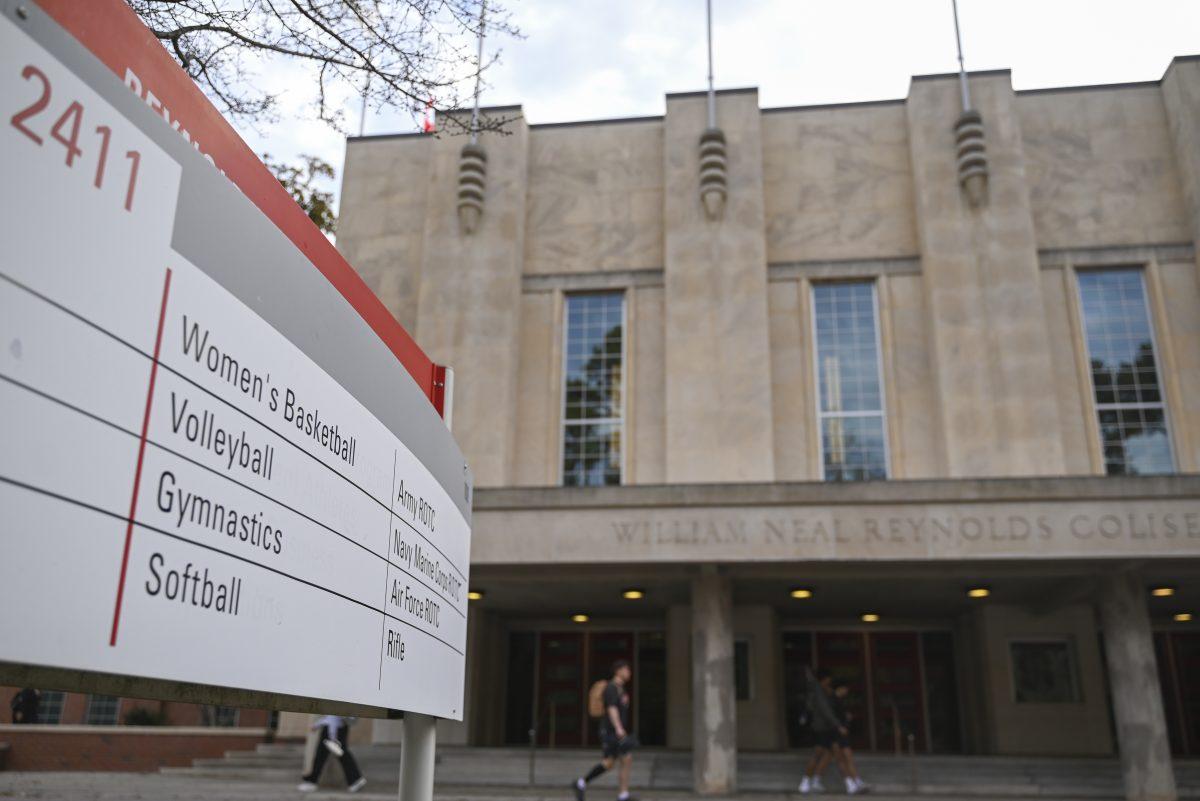Michael Whatley, chairman of the Republican National Committee, visited NC State Monday evening to address students at an event hosted by Turning Point USA. The event, held in Talley Student Union, drew both attendees and protesters, highlighting political tensions on campus.
Whatley, introduced by NC GOP Chairman Jason Simmons, spoke about the Republican Party’s platform, the role of young voters and current economic challenges. Protesters met his remarks with squeaking rubber pigs. Despite the interruptions, Whatley said he welcomed dialogue.
“We appreciate you guys coming out here to have a constructive dialogue,” Whatley said. “The fact is that we have a very closely divided country — everybody knows it.”
Whatley played a role in organizing rallies in the state during President Donald Trump’s 2016 presidential campaign and became North Carolina GOP Chair in 2019. In 2023, he was elected RNC General Counsel and ascended to chair in 2024.
Whatley began by sharing insights on how Trump’s platform earned the popular vote in November, citing some of the President’s initiatives.
“Donald Trump is trying to talk to every single American about the fundamentals of what matters in America, like restoring our borders, rebuilding our economy, keeping our community safe and making sure that America is strong enough to protect our interests and our allies around the world,” Whatley said. “That’s what the American people want. … Today was the highest poll numbers we have seen for him, a 54% approval rate.”
However, Trump’s approval ratings have taken a hit since his announcement of new tariffs. A Reuters poll found that his approval rating fell to 43%, while Rasmussen Reports found that 47% percent of American voters approve of his actions.
Whatley also noted social media’s role in Trump’s rise in popularity, particularly among young voters, and how he hoped to support young voters’ futures.
“We didn’t necessarily change our messages to any particular voting block, including young voters — we changed our delivery methods,” Whatley said. “But those conversations were very real, and the shift that we saw among young voters to Donald Trump is absolutely critical for the future of the Republican Party.”
During a short Q&A, students expressed growing concerns regarding the affordability of goods.
“In terms of how we are going to get the economy back on track through prices, we want to bring down gasoline prices, grocery prices, housing prices,” Whatley said. “So what [Trump] has been putting in place in terms of economic drivers are designed to do exactly that. One of the critical points in terms of bringing down prices for almost everything in the economy is bringing down gasoline prices. … We are seeing grocery prices that are coming down.”
Several students also raised concerns about freedom of speech, particularly for legal immigrants, after two NC State students had their visas terminated by the U.S. State Department last week.
“Censorship is wrong,” Whatley said. “… Obviously, every American citizen has a right to free speech.”
When pushed by protestors about the treatment of pro-Palestine students across the U.S., Whatley said students on visas are not citizens, therefore, they do not have the right to free speech. However, the Supreme Court precedent set by Bridges v. Wixon, and upheld by several cases after, states that legal immigrants are “invested with the rights guaranteed by the Constitution to all people within our borders.”
Ava Dandurand, a second-year studying natural resources, a student senator and protestor at the event, emphasized the relevance of the recent visa terminations of NC State students to Whatley’s invitation to campus.
“I got an email saying that there was a Turning Point USA Event. And I just thought it was disgusting to host this event and have these people come during a time where … that dude didn’t even care about the revocation of people’s visas. And it’s not just here, it’s at universities across [the U.S.],” Dandurand said. “In the email, it said you can ask questions about DEI and the revocation of those two visas. He didn’t care.”
The event ended at 8 p.m., ending Whatley’s time. Afterwards, Paul Lewis, a second-year studying engineering who serves as the vice president of Turning Point U.S.A. at NC State, said the event went as expected.
“Turning Point always has some type of pushback,” Lewis said. “… We saw a lot of comments that ‘we need to get together and protest,’ and that’s exactly what we saw.”
While the protest came as expected, Lewis said he was disappointed in the nature of some of the disagreements.
“We had members of our listening community arguing with each other, and that’s not what we wanted to see — we wanted to see constructive debate,” Lewis said.
Lewis said protestors are welcome at Turning Point USA events, and their concerns are valued.
“As Chairman Whatley said, free expression is welcome, and one big thing about Turning Point USA is we are pro-constitution,” Lewis said. “We are definitely pro-first amendment, and we are glad they came to express their viewpoints.”













